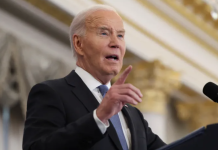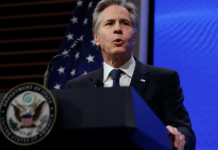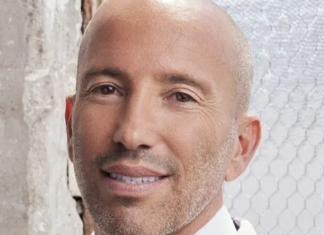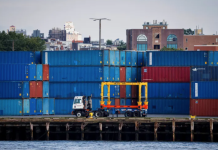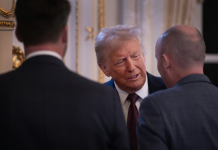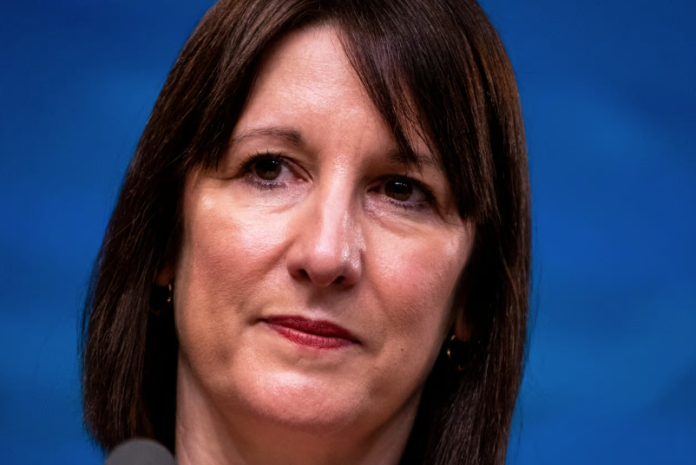
“We’ve now got someone who’s incredibly hostile to China coming into the White House,” said a bank lobbyist.
LONDON — A single post on X could torpedo British Chancellor Rachel Reeves’ carefully-choreographed trip to China.
The U.K. finance minister is taking a gamble with her visit to Beijing this weekend, risking the ire of incoming U.S. President Donald Trump as she seeks cash and investment for the British economy.
It should in theory have been an easy win for Labour.
After years of tension with the previous Conservative government over human rights and security concerns, Reeves has political space to take a different, more business-like approach to Beijing and try and tap China’s vast market for economic benefits.
“Everything the Tories did on foreign policy was about backbench management,” said a U.K. government official, who, like others in this article, was granted anonymity to speak candidly. “We got to a position where we were the G7 country with the worst relationship with China.”
Reeves’ mission has become more desperate as the U.K. economy continues to falter, with borrowing costs this week reaching 1998 levels and the pound tanking, threatening the government’s pledge to generate growth and make Britons wealthier. That’s prompted some grumbling back home as opposition parties urge Reeves to pull the trip altogether.
But it’s Donald Trump’s imminent return to the White House, and his virulent dislike of China, that creates the most peril, with Britain keen to avoid angering its biggest single trading partner.
With Trump’s right-hand man and tech billionaire Elon Musk seemingly charting the daily course of British politics via posts on his social media platform, X, Reeves risks triggering another pile-on.
“China is a growing and important partner, but the U.S. is way more important and we’ve now got someone who’s incredibly hostile to China coming into the White House,” said a bank lobbyist.
“All it will take is Trump to notice it, or someone to bring it to his attention, and you’ll start to get another load of Musk, Trump, U.S. social media attacks on the U.K. government, this time for being soft on China.”
The trip
Reeves jetted off Thursday evening with a small group of business executives in tow, led by HSBC Chair Mark Tucker, in what is designed to be a low-profile visit with no press accompanying the pack.
Bank of England boss Andrew Bailey and the U.K.’s financial watchdog, Nikhil Rathi, help make up the numbers in a small yet distinguished 10-strong delegation dominated by City of London executives.

They’ll meet top officials in Beijing Saturday, Shanghai Sunday and then head back to London on Monday.
Yet while the trip will be short and speedy, it’s still hugely significant.
The two sides will hold the first U.K.-China Economic and Financial Dialogue since 2019 alongside a heavily stage-managed financial services summit to try and drum up business.
Relations had soured under the previous Conservative government due to China’s treatment of Hong Kong, the pandemic, and broader human rights concerns.
Hawkish Tories, like MPs Tom Tugendhat and Iain Duncan Smith, pushed national security concerns to the forefront of the relationship over any potential economic benefits.
Business first?
The City hopes Reeves’ trip could lead to a more open approach harking back to the coalition government in the 2010s, when then-Chancellor George Osborne lured Chinese banks to London and cemented the City’s position as an offshore hub for renminbi.
“It is a bit like George Osborne — it’s ‘how do we get billions in cash for stuff’ and it’s less about countering China’s influence around the world,” one business figure said.
“Rachel is the standard-bearer for business in government — she is the one. So sending her to China makes sense and it means they must sense it can lead to economic growth.”
China is the world’s second largest economy after all.
And the U.K., strapped for cash domestically, could even benefit from being stuck in the middle of Beijing and Washington if it gets it right.
“We may live in a world in which there are two 500-pound gorillas staring at each other,” Rupert Soames, the chair of the U.K.’s biggest business lobby, told POLITICO. “But we can be a nimble, agile animal of smaller size.”
With that, could come opportunities for the City of London’s vast array of banks, insurers, fund managers, lawyers and advisers.
“We’re seeing a lot more Chinese companies genuinely internationalizing these days,” said Nicola Watkinson, international managing director for TheCityUK trade lobby.
“The U.K. is well positioned to support those businesses. Not only do we have a great global reputation, but we’re a very neutral player.”
Times have also changed economically.
With Chinese banks already set up in the City, the potential economic reward is now around bolstering investment in areas like green finance and tapping growing pension pots.
“If you’ve got shared standards of what green looks like, then that makes it easier for investment to be able to take place and finance to be able to flow,” said Watkinson.
Is it worth it?
But it’s also easy to get squashed when you’re stuck between two 500-pound gorillas.
Even in the seemingly innocuous area of green finance, any steps toward Beijing, and its appetite for clean energy, could anger Trump’s gas-guzzling America.
And that’s a gamble, as Reeves’ desire for investment above everything may not pay off with China.
The country under its communist leaders is still a notoriously closed-off and difficult financial market to access without homegrown political connections.
The EU, the U.K.’s other huge trading partner, isn’t exactly in bed with Beijing either due to tariff disputes, China’s support for Russia, and fears over reliance for critical services and raw materials.
“Will you get enough financial services business to make that worthwhile, given how much more important the EU and the U.S. are?” the bank lobbyist queried.
For China watchers, Britain’s economic desperation could also play straight into China’s hands in its battle with Trump.
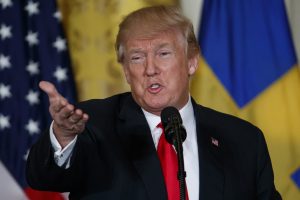
“Beijing will seek to capitalize on the Trump presidency to drive a wedge between the U.S. and the U.K,” said Sophia Gaston, a senior fellow in London for the Australian Strategic Policy Institute.
“Beijing is very aware that the Starmer government is on a mission for growth, so is coming to these conversations about investment and economic engagement from a position of strength.”
And while it might be great to talk up closer economic ties, Labour hasn’t totally broken with the Tories on national security concerns.
It was only in December that the British establishment was rocked by a spying row involving Prince Andrew and a Chinese businessman. At the same time, the government delayed a long-awaited audit of U.K.-China relations, which is now not due until the spring.
Reeves and her officials will all be traveling with burner phones to avoid espionage. The BoE’s Bailey would leave his phone and laptop in London under its cybersecurity advice for staff.
Any other business
While talks will mainly focus on financial services, market access and lowering trade barriers in areas such as agriculture, food and legal services, are also likely to dominate.
High on the U.K.’s wish list is expanding market access for British meat products, with the government already taking steps in December by finally lifting Covid-era restrictions on pork exports to China — Britain’s largest non-EU market for pork and offal.
Separately, Britain is also keen to give more access for its lawyers in Chinese markets, as right now, U.K. lawyers can’t qualify as Chinese lawyers, and Chinese lawyers can’t practise Chinese law in U.K. firms.
Yet many in the City see the real barrier to doing business with China as closer to home.
London’s financial center is battling against China being placed on the enhanced tier of a foreign influence register — which comes with the threat of prison sentences for executives that fail to manage the risk properly.
The City fears this would have a major chilling effect — stopping financial services firms from working with Chinese companies at all on what is otherwise humdrum business.
The Treasury still needs to win a battle with the Home Office for the economy to come out on top.
Given Reeves could have made progress on that issue from the comfort of No. 11 Downing Street, and avoided triggering Trump in the process, she’ll have to hope the trip to China is worth it.




